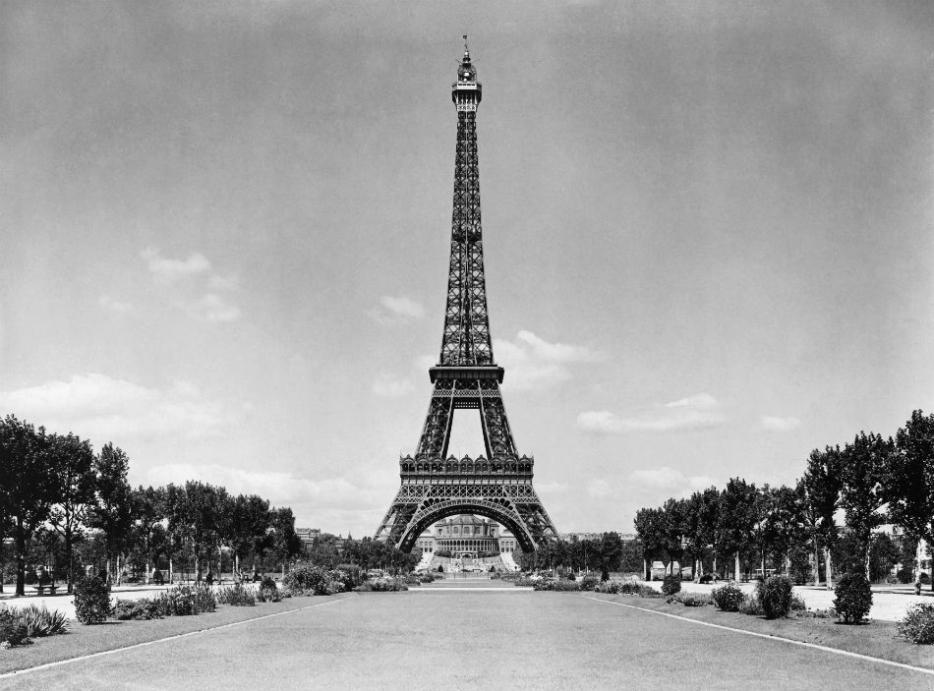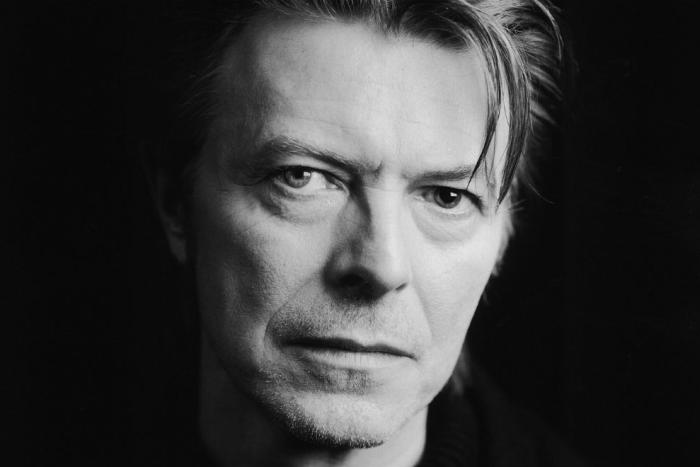Whenever I see my dentist in North York, the glassy subdivision of Toronto where my parents live, she always asks: “Still in Paris, living the dream?” My reply, through the barricade of plastic and metal stretching my mouth open and obstructing my tongue, is always an acquiescent grumble.
I moved to Paris in 2007, having only been once before, when I was eleven. I remember seeing a wedding dress shop called Harriet de Prague and thinking it was the strangest thing that my name should belong in this place. I’ve now lived here for the better part of eight years—the wedding dress store has since shut down, and people write my name Ariette. While I’ve also spent time in Halifax, New York, London, Amsterdam and Toronto, nobody ever asked if I was living the dream in those places.
In the 1980s, Hiroaki Ota, a Japanese psychologist living in Paris, identified a reaction many of his compatriots experienced upon arriving here and called it “Paris Syndrome.” He said that Japanese people have an especially strong mythology of this city and so, expecting perfection, they have an especially difficult time when they visit. When I first arrived, people sent me articles from the BBC and The Guardian, jokingly warning me to be careful.
The BBC article says that “on average, up to 12 Japanese tourists a year fall victim to [Paris Syndrome], mainly women in their 30s with high expectations of what may be their first trip abroad.” The short article concludes: “The Japanese embassy has a 24-hour hotline for those suffering from severe culture shock, and can help find hospital treatment for anyone in need.”
I’d heard of Stendhal Syndrome, named after the 19th century French author who wrote that the beauty of Florence made him physically ill:
I was in a sort of ecstasy, from the idea of being in Florence, close to the great men whose tombs I had seen. Absorbed in the contemplation of sublime beauty... I reached the point where one encounters celestial sensations... Everything spoke so vividly to my soul… I had palpitations of the heart, what in Berlin they call 'nerves.' Life was drained from me. I walked with the fear of falling.
Ota professed Paris Syndrome to have similar symptoms—anxiety, fear, hallucinations—but opposite origins: rather than being overwhelmed by beauty, Ota said that Japanese tourists in Paris become psychologically troubled when their idealized expectations of the city are not met.
Nervure, the French psychology journal, published an article on the syndrome in 1995. The article opens: “Ever since the 19th century, the Japanese have idealized France, Paris in particular, as a cultural symbol.” (As Joanna Newsom sings, “the signifieds butt heads with the signifiers.”)
In a country made fragile by its deep xenophobia, how might discontent come to be expressed? From what I’ve seen, it festers until, one day, it explodes.
It always seemed a little strange to me that an illness that only affects 12 tourists annually, all of them from one country, was being given so much international media attention. Hoping to find more in-depth and up-to-date information, I made a visit to the Japanese Embassy on a quiet boulevard off one of the spokes of the Etoile roundabout, but the man in the press office cut short my efforts. “This so-called Paris Syndrome,” he said, “is not recognized by any officials in either Japan or France, and there is no specific group within the Embassy that deals with any kind of health problems.” The embassy had “no information and no statistics” on Paris Syndrome—essentially, they had no comment.
Before he concluded the conversation I managed to ask about the 24-hour hotline, and I received an even stronger reaction: “This hotline that has been written about in the media does not exist. It does not exist! It is false information! It seems to have come from an ironic statement, and was picked up as true and disseminated.”
Furthermore, he said that Hiroaki Ota “refuses to speak to journalists, or to answer any questions on the matter.”
“Why’s that?” I asked, wondering whether it’s because of what this man seems to be telling me: that Ota’s research has been debunked.
“Because it’s his right!” cried the Japanese man at the Embassy in what I considered to be a perfected French manner.
And that was that.
*
The Hôpital Sainte Anne is the psychiatric hospital in the 14th arrondissement that’s mentioned in Nervure and many of the Anglophone articles as a partner with the Japanese Embassy, offering tourists suffering from Paris Syndrome the required psychiatric help. If the Japanese Embassy doesn’t deal with any kind of health problems, I thought I might find answers here.
But when I called the hospital, the secretary had never heard of Paris Syndrome; I described it, and she said she’s never seen anyone with such a condition. They do offer psychiatric help in Japanese, the secretary told me, and the Japanese-speaking psychiatrists have several Japanese clients, but they’re all landed immigrants, not tourists.
*
What is it about Paris that creates the possibility for unrealistic expectations in the first place? Whether Ota’s conception of Paris Syndrome actually exists (and even if it does, nobody is claiming it affects more than a miniscule fraction of the million Japanese tourists who visit each year) why are people like my dentist unable to perceive that life in this city could be anything other than a dream?
There’s no one authoritative answer as to why Paris is called the “City of Love,” but one theory is that this name dates to the mid 19th century, when nobles from England visited Paris to do things that they wouldn’t do at home. While prostitution is still legal here, and sex shops around Pigalle proliferate in the red shadows cast by their neon signs, the more popular way for tourists to show their love these days is with lock and key. Lovers write their names on the lock, shackle the lock to a bridge, and then throw the key in the Seine. There are over three-quarters of a million locks across the city, and though a city worker comes around regularly with metal cutters, the locks reappear just like the arms of a starfish.
Part of the Pont des Arts recently collapsed under the weight of all that love, but in a city that relies on the industry of romance to draw tourists, nobody seems to want to constrain their passionate gestures.
As tourists pass over the surface of the city, eating macarons and taking selfies and fettering love locks to other, unfelled bridges, it’s possible for them to create the city of their dreams. They can focus on the signifiers and ignore the signified. But for people who move here with an ambition to settle, a different sort of Paris Syndrome can set in. There’s a feeling of being kept at arm’s length from the city that’s partly due to the extreme beauty of the place, but mostly to the undercurrent of xenophobia that, for many immigrants, defines French culture.
Speaking of the racism in this country, France’s Prime Minister Manuel Valls said in the aftermath of the Charlie Hébdo attacks that France has a “territorial, social and ethnic apartheid… Integration is a word that no longer means anything.”
In a country made fragile by its deep xenophobia, how might discontent come to be expressed? From what I’ve seen, it festers until, one day, it explodes.
*
The day after I visited the Japanese Embassy I had dinner with my friend Krista, an American editor living in Paris, and told her, over a bowl of cheap ramen, how I was discovering that Paris Syndrome seemed to be a myth in itself.
“If Paris Syndrome did exist,” Krista said, “the people who seem to suffer from it most are Parisians themselves – they never stop complaining about the city. I want to ask them – Have you ever lived anywhere else? Because it’s actually pretty pleasant here!”
And she’s right. The French suffer more from dissatisfaction and disillusion than any other group of people I’ve ever encountered. Twelve Japanese tourists allegedly fall victim to Paris Syndrome annually, but there are 2.24 million grumpy Parisians in this city: a Gallup poll from 2011 revealed that France is the most pessimistic country in the world. (When I ask French friends about this, they invariably say: “This is not pessimism, it is realism!”)
Living in France has taught me that pessimism and indulgence are two sides of the same coin. A WHO report released this time last year revealed that 31% of French adults smoke daily, compared to 14% of American adults. Alcohol consumption in France is responsible for the deaths of 49,000 people annually, according to a 2013 report published by the European Journal of Public Health. That’s 134 people every day.
People who can't imagine that Paris is anything other than "a dream" believe, no matter what I say to convince them otherwise, that everyone lives this glamourous, bohemian life just because they happen to have a beautiful backdrop. Even poverty is glorified in a "Down and Out" sort of way. But the reality is not glamourous at all: in the last 10 years, homelessness in France has risen by 50%. INSEE, France’s national institute for statistics, said last year that 8.8 million people are living in poverty, and 3.5 million people have “inadequate accommodation” (ranging from unsanitary homes to none at all). Every day I see whole families living and sleeping on major streets and intersections, using tree stumps as though they were public toilets. For two years there was a family, mother and son, living in the phone-booth across from my apartment. In his surprise-bestseller Capital, French economist Thomas Piketty writes that the extreme income inequality that sparked the first French Revolution is not getting any closer to being solved: "In Europe today, the capital/income ratio has already risen to around five to six years of national income, scarcely less than the level observed in the eighteenth and nineteenth centuries."
But if you were one of the 33 million tourists who visited this photogenic city in the last year (making it the most visited city in the world), these statistics don’t affect you, let alone include you.
*
The other day I was crossing the street at rue du Faubourg Saint Denis, underneath the stone archway where pigeons convene, when I dropped my glove. It’s a beautiful glove, soft leather and suede, and as the glove fell my heart rose to my glottal stop and I thought if this glove touches the ground, it will be lost to the world. Of course my glove wasn’t lost—I picked it up right away—but how can I explain that irrational fear? Paris holds a mystery that can be mistaken for romance, but I think of it as a capacity for loss. The city is designed like a web; it sometimes feels unmappable. I’ve always had the feeling that Paris can make things disappear.
Unlike other cities, where people go to make themselves—their fortunes, their legacies—Paris has the reputation of being a place where many ex-pats come to find themselves. Find their voice, their truth, their people. Where some cities can be maddening in their upwardly focused ambition, reflected in the skyscraping architecture which is forbidden in Paris, people who come here can often be found looking at their navels instead of at the sky.
In the process of trying to find yourself, you’ll inevitably get lost. Maybe this is because “yourself” isn’t a final destination. There’s also an impossible contradiction in that idea: when you’re trying to find yourself, everywhere you look is a mirror; rather than fitting into a place, you become superimposed over it.
I’ve been the writer-in-residence at Shakespeare & Company for the last three months, living in a beautiful book-lined apartment above the shop. This bookshop is one of the top five in the world, and it’s also one of Paris’s top five tourist destinations. The shop means one thing for the people who live in the city, and another entirely different thing for those who are just passing through.
The other night I took the bookshop dog, Colette, for a walk, and my breath actually got caught in my throat for a second when I saw a big, full, ghost-like moon hovering low over the rooftops, over the bridge with its golden lampposts and golden locks (they may be a plague on the city but they do catch the light beautifully) and over the glittering black Seine. You just have to say the words and there's romance here; nouns are weighted in this city. The Paris moon. The Paris bridge. The Paris river. But the words are just the symbols; they’re not the story. And I think, ultimately, any kind of Paris Syndrome is just that: mistaking the symbols for the story.






